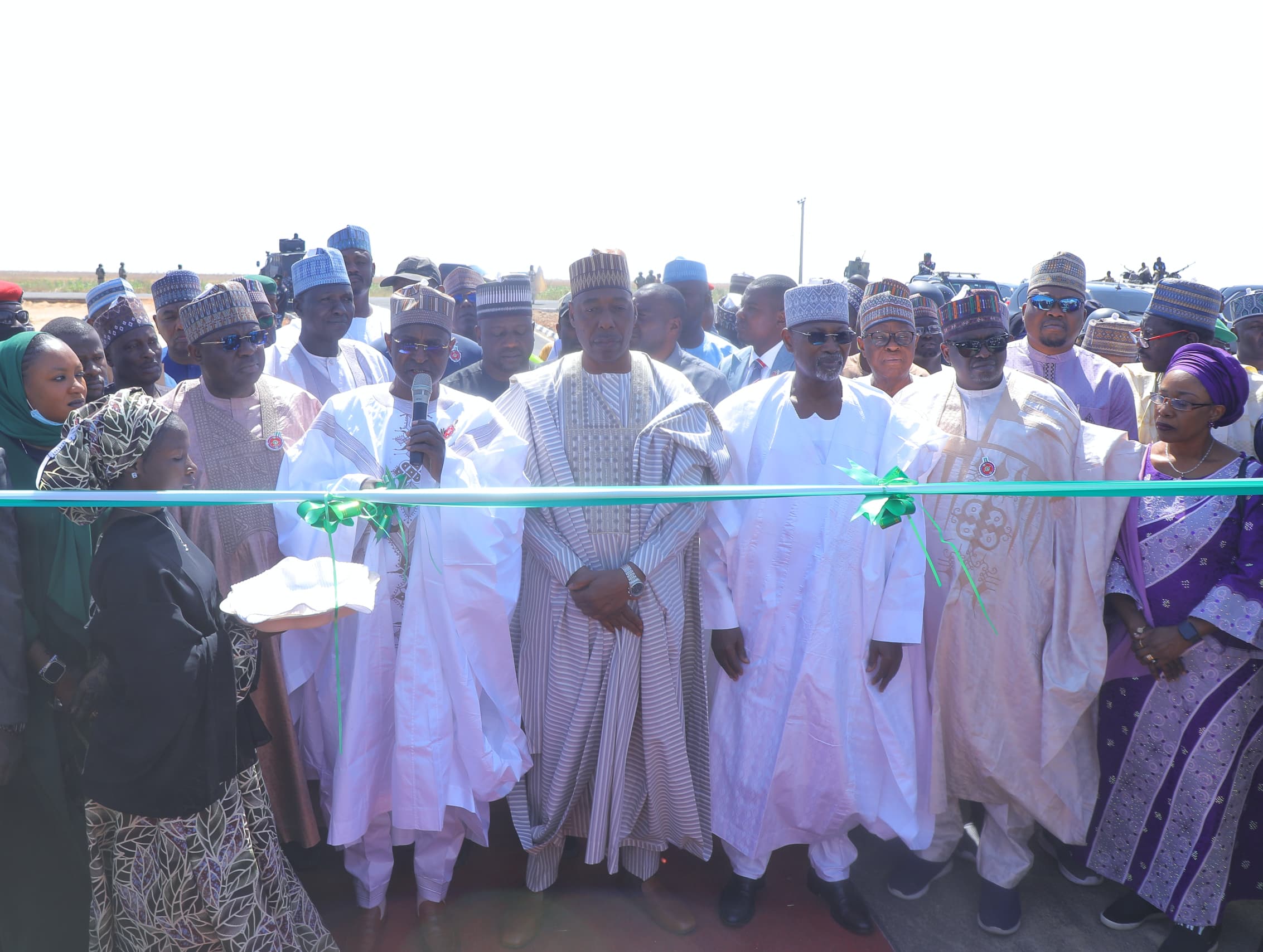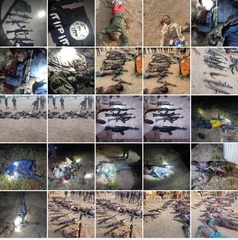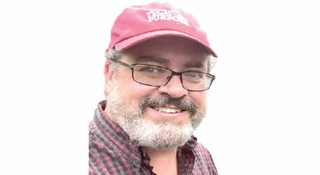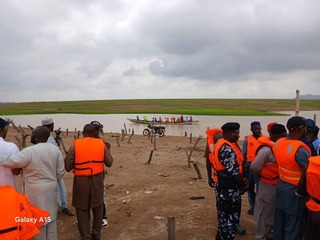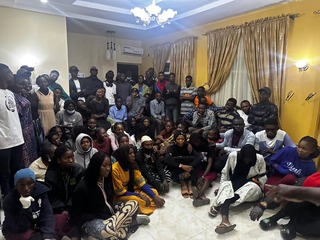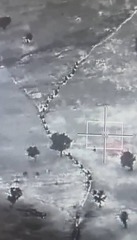In a transformative initiative poised to reshape Nigeria's agricultural landscape, Borno State has officially launched the Ngarannam Livestock Improvement and Ranch Settlement.
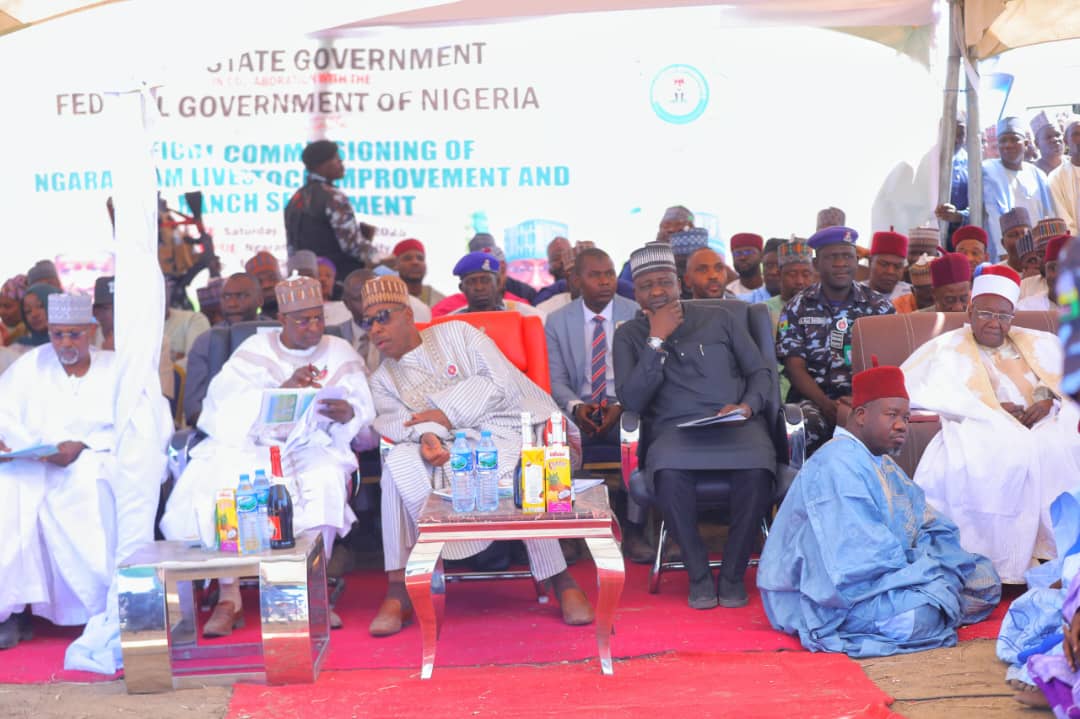 This landmark project, inaugurated in the presence of key stakeholders including the Minister of Livestock Development, Idi Mukhtar Maiha; Prof. Attahiru Jega, Co-Chairman of the Presidential Committee on Implementing Livestock Reforms; and Governor Babagana Zulum, signifies a pivotal shift toward modernizing the nation’s livestock sector while addressing long-standing issues such as farmer-herder conflicts, inadequate infrastructure, and low productivity.
This landmark project, inaugurated in the presence of key stakeholders including the Minister of Livestock Development, Idi Mukhtar Maiha; Prof. Attahiru Jega, Co-Chairman of the Presidential Committee on Implementing Livestock Reforms; and Governor Babagana Zulum, signifies a pivotal shift toward modernizing the nation’s livestock sector while addressing long-standing issues such as farmer-herder conflicts, inadequate infrastructure, and low productivity.
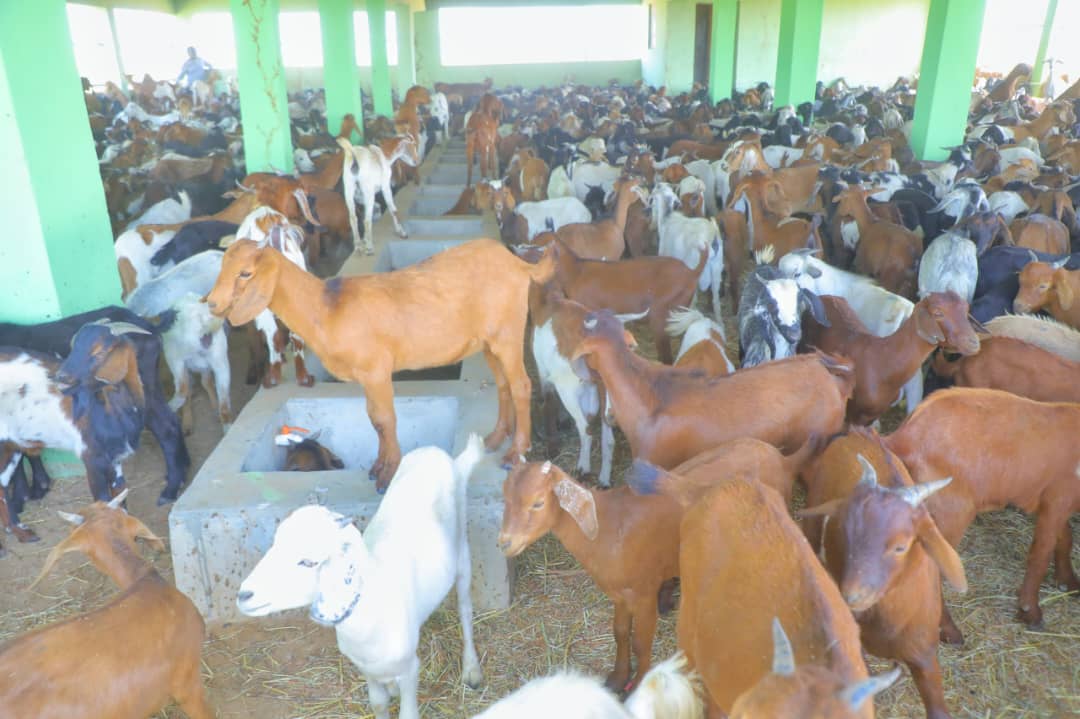
The Ngarannam Livestock Improvement and Ranch Settlement is designed to enhance livestock farming in the region by providing essential infrastructure, improved grazing conditions, animal health services, and modern ranching practices. Historically, Borno State has been a leader in livestock farming in Nigeria, yet its potential has often been stifled by outdated practices and a lack of organized infrastructure. This new settlement, equipped with advanced veterinary clinics, sustainable water supply systems, and breeding centers, charts a clear path toward transforming the sector into a sustainable and profitable industry.
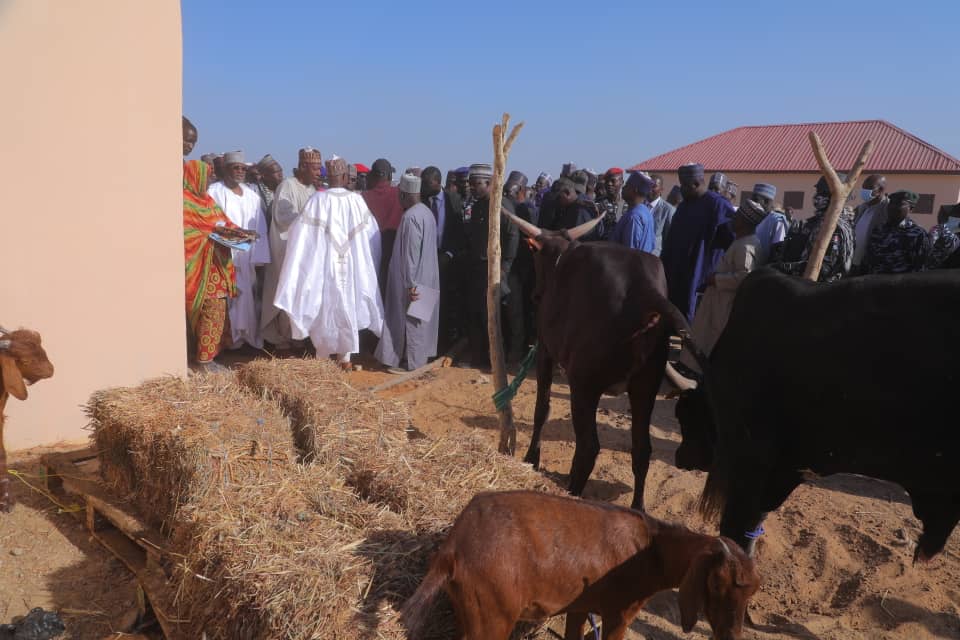 Governor Zulum, whose administration has prioritized agricultural transformation, expressed unwavering support for the project during the commissioning ceremony. He underscored the livestock sector's critical role in boosting economic growth, reducing poverty, and fostering peace in the region. “This initiative transcends mere livestock production; it’s about creating jobs, empowering our youth and women, and alleviating the conflicts that have long plagued our communities,” stated Governor Zulum.
Governor Zulum, whose administration has prioritized agricultural transformation, expressed unwavering support for the project during the commissioning ceremony. He underscored the livestock sector's critical role in boosting economic growth, reducing poverty, and fostering peace in the region. “This initiative transcends mere livestock production; it’s about creating jobs, empowering our youth and women, and alleviating the conflicts that have long plagued our communities,” stated Governor Zulum.
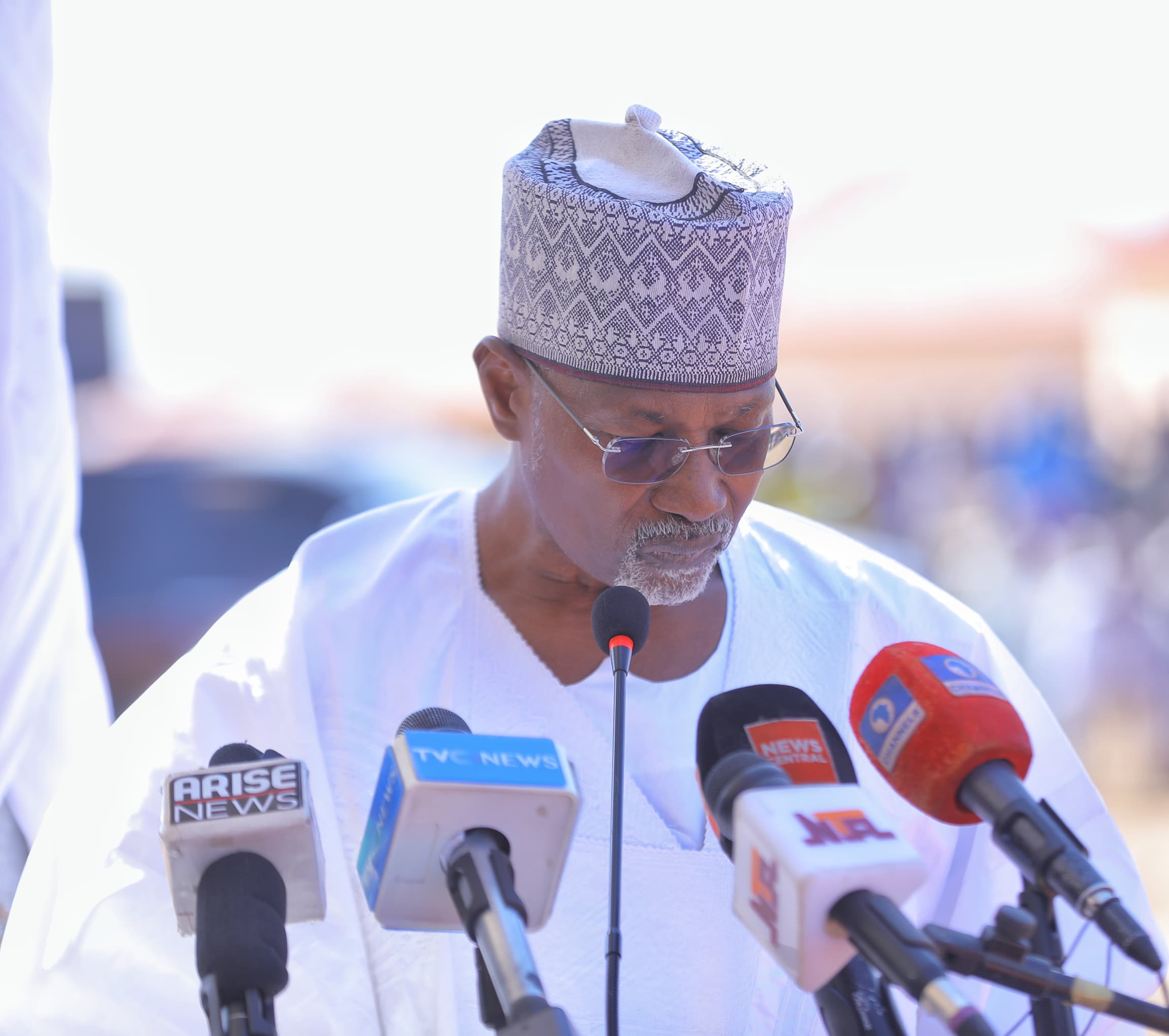
“This project reflects our vision to rebuild and transform Borno. It aligns with the Borno State 25-Year Development Plan and our 10-Pact Agenda. Beyond infrastructure, it represents hope, resilience, and progress for our people,” Zulum said.
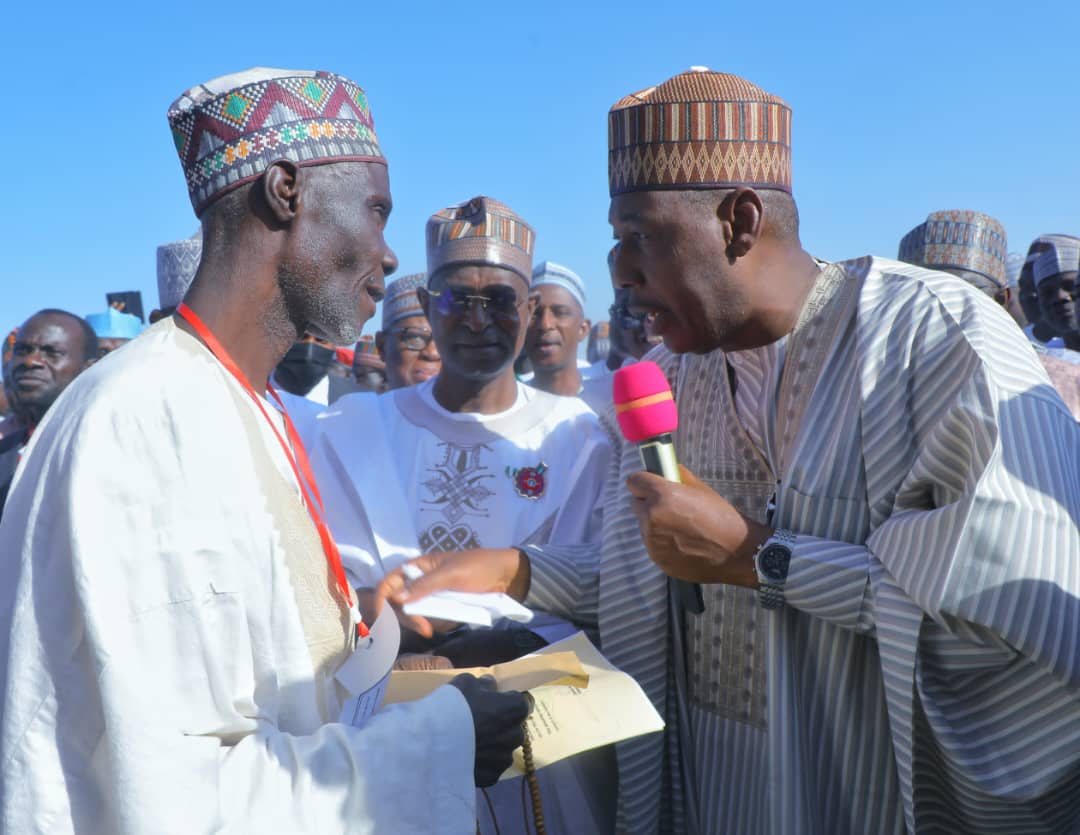
The Governor announced that the Ngarannam settlement features state-of-the-art facilities, including housing estates, schools, health clinics, veterinary services, and pasture development centers to ensure smooth operation. “The ranch also includes milk collection hubs, markets, and security outposts to foster economic growth and ensure safety,” he added.
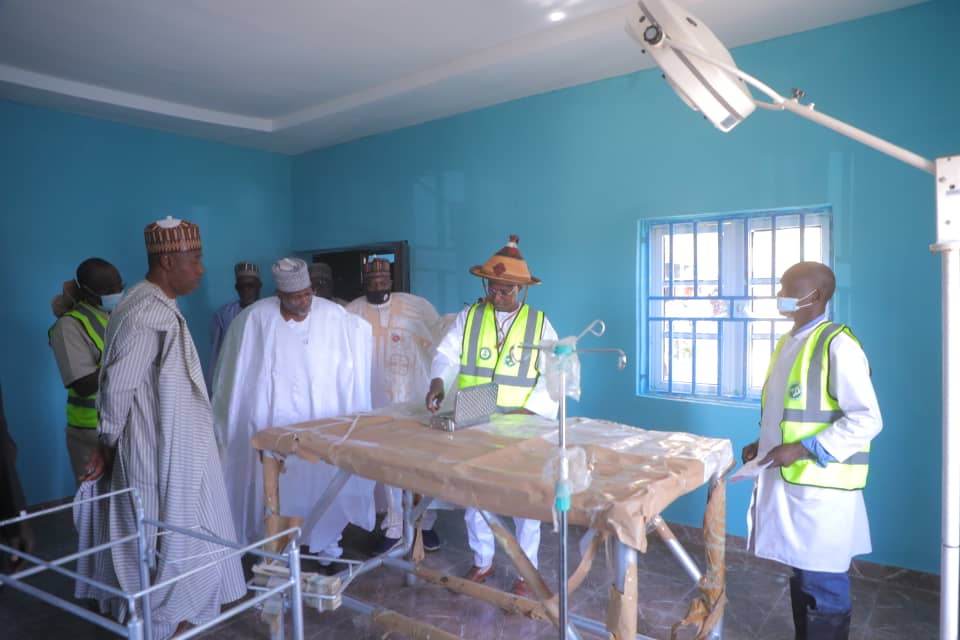
Zulum revealed that each of the 461 households from 18 communities displaced by insurgency in the Ngarannam area would receive humanitarian relief packages and livestock, including pairs of bulls, heifers, and goats, as part of efforts to restore livelihoods. The governor praised the collaboration between Borno State and the federal government, particularly through the Presidential Livestock Reforms Implementation Committee, which is steering the national agenda for reform in the livestock sector.
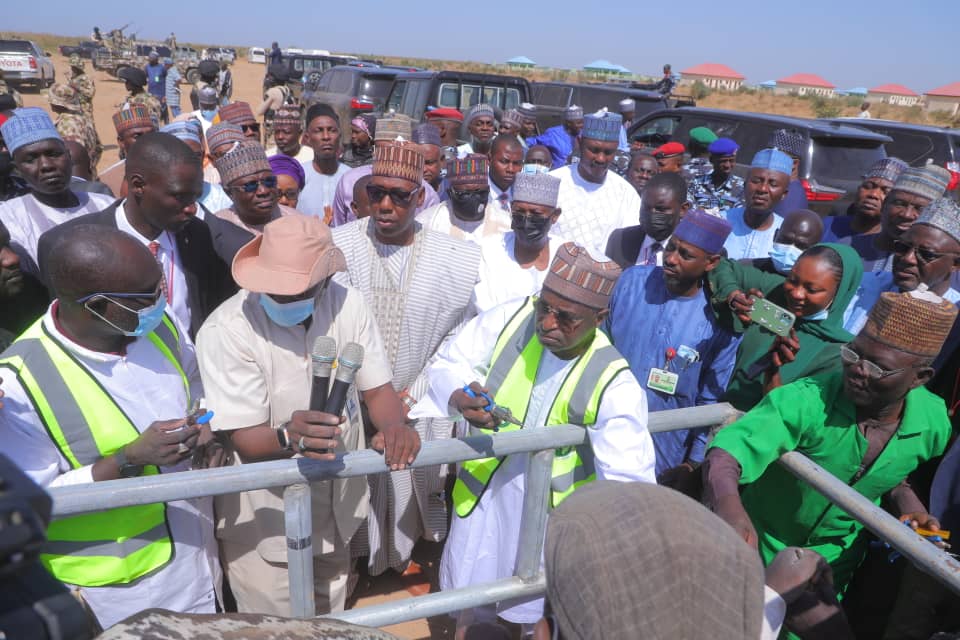
Zulum reiterated Borno State’s commitment to supporting livestock development, ensuring that the benefits of reform reach those who need them most. “This project is not just about livestock; it’s about creating lasting prosperity for our people and ensuring peaceful coexistence among all stakeholders in the sector.”
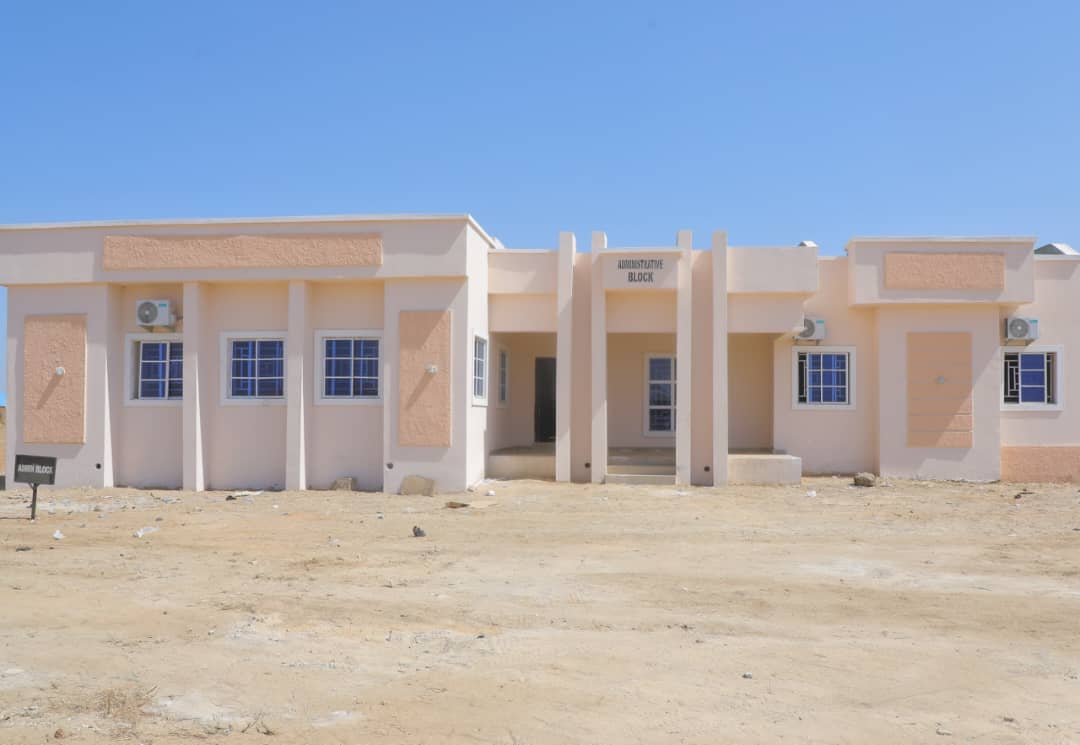
The Deputy Governor of Borno State, Dr. Umar Kadafur, who doubles as the Commissioner Ministry For Livestock Development noted that the Ngarannam ranch is equipped with over 27 essential facilities, including a breeding centre, earth dams, and solar-powered boreholes for irrigation and livestock needs,”he said.
Kadafur revealed that 200 hectares of rain-fed pasture had been cultivated to support year-round grazing.
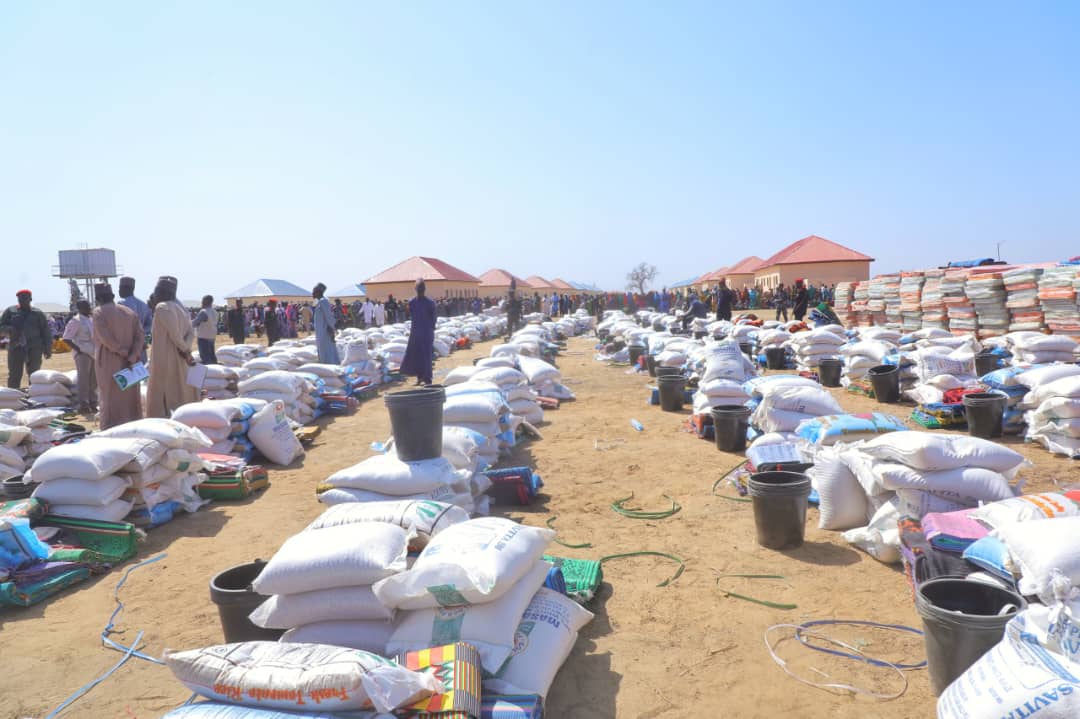
Minister of Livestock Development, Idi Mukhtar Maiha, echoed this sentiment, emphasizing the importance of state-level involvement in these reforms. He commended Borno State for its proactive approach to livestock management and urged other states to adopt similar strategies.
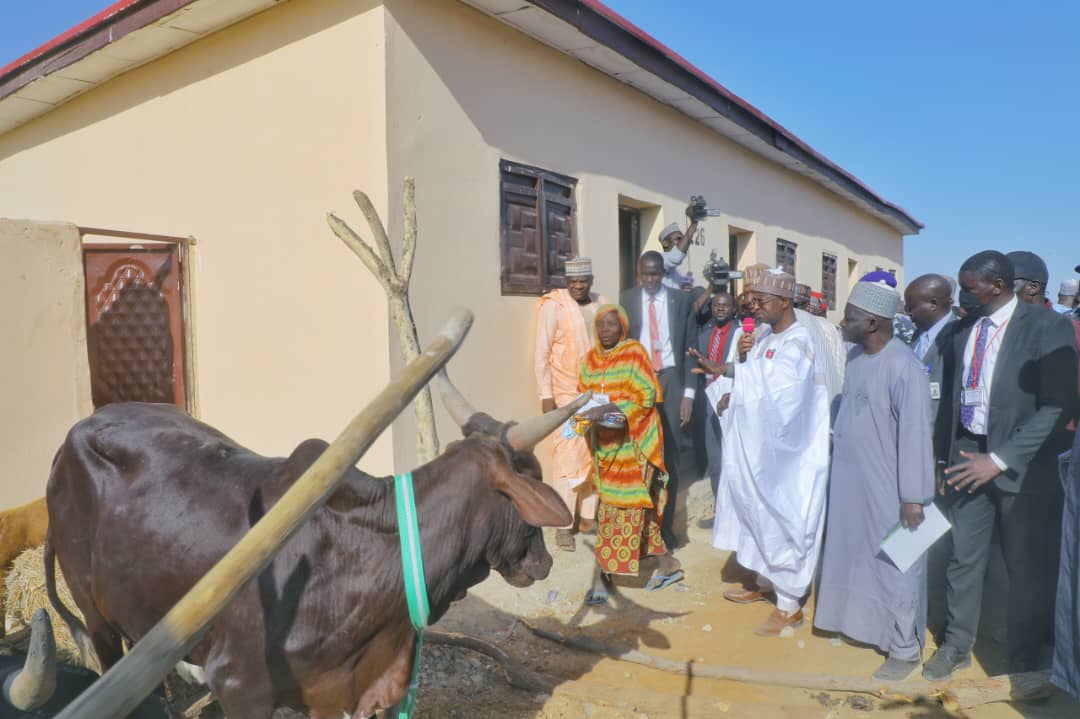
He stated that the project, initiated to modernize livestock production, aims to improve food security, reduce farmer-herder conflicts, and restore livelihoods in communities affected by insurgency. Maiha commended the Borno State Government for its significant role in the initiative, describing it as a model for sustainable livestock development in Nigeria.
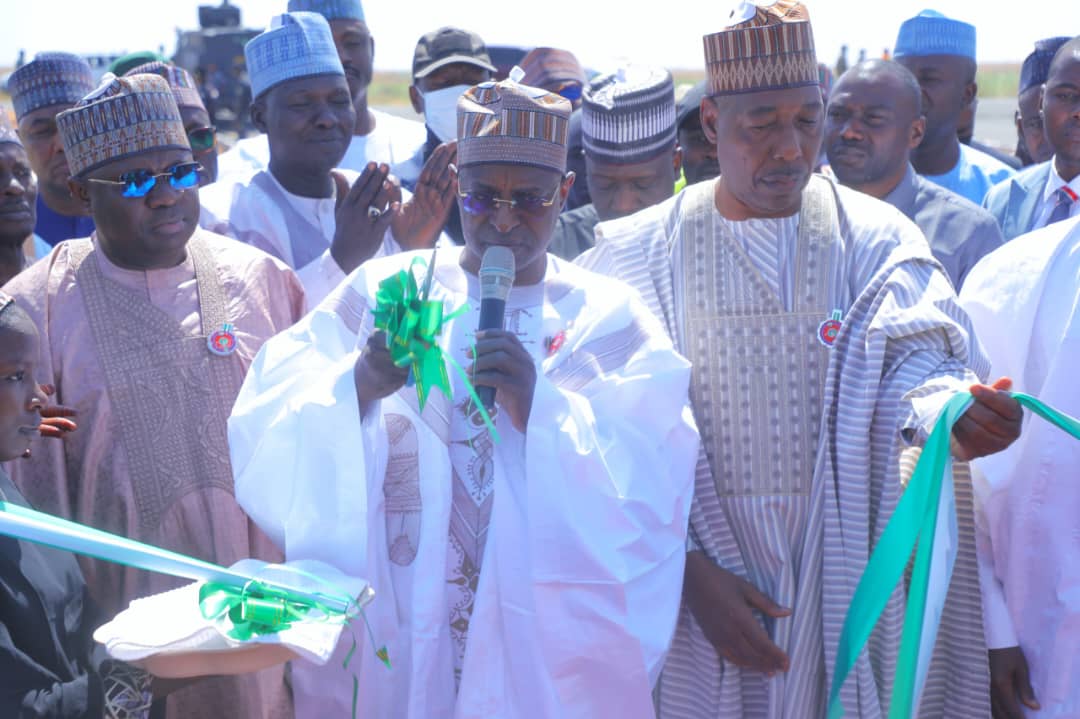
The commissioning of this settlement underscores the Federal Government’s commitment to transforming the livestock sector into a vibrant, productive, and sustainable industry. This project aligns with the Renewed Hope Agenda of President Bola Ahmed Tinubu and the vision of the Federal Ministry of Livestock Development to enhance productivity and settle pastoralists.”he said

He added that the facilities available at the ranch, including veterinary clinics, dairy and beef upgrading centers, and milk collection hubs, are designed to meet international standards for meat and dairy production.
The Minister urged beneficiaries to take ownership of the facilities and ensure their effective use.
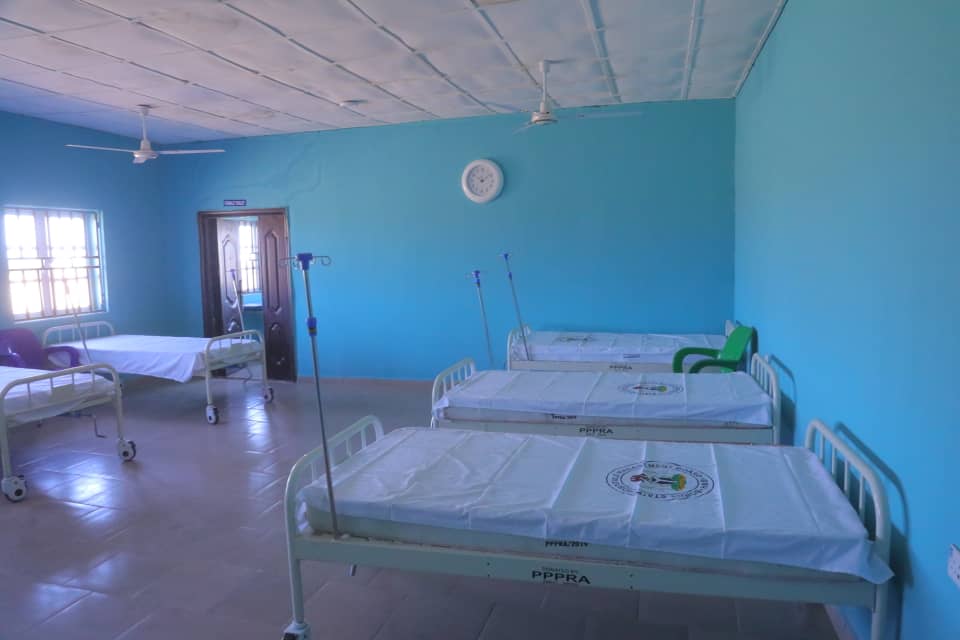
Maiha called on other states to emulate Borno’s approach, noting that the Federal Government would continue to support state governments in enhancing the livestock sector.
“The success of livestock reform in Nigeria relies heavily on the cooperation of both the federal and state governments. This collaboration will enhance productivity, attract investments, and foster a harmonious relationship between herders and farmers,” he remarked.
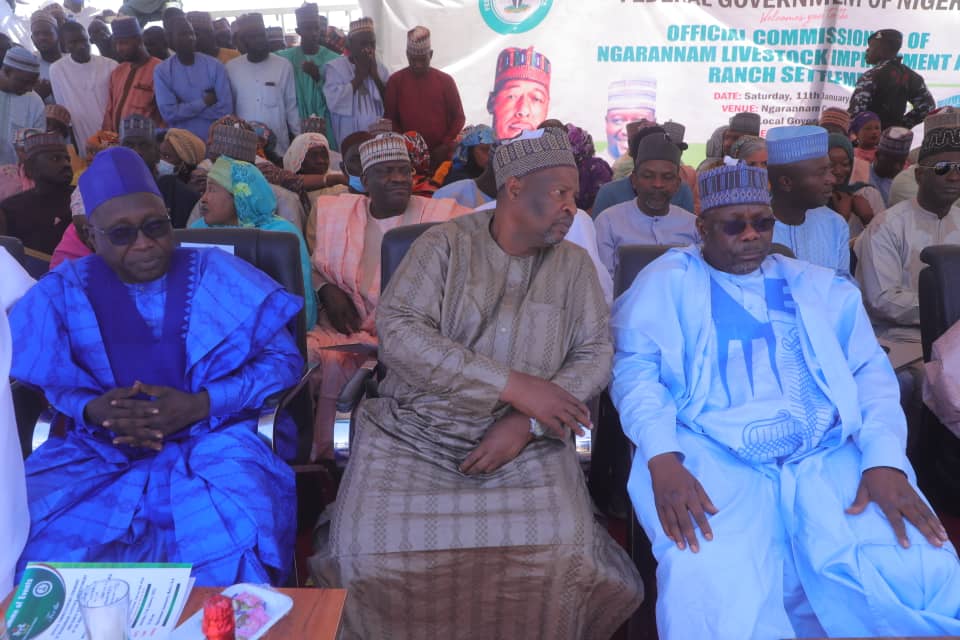
Life-Changing Opportunities for Beneficiaries
The Ngarannam Livestock Improvement and Ranch Settlement is already making a significant impact on the lives of local farmers. Among the beneficiaries of this transformative initiative are three individuals who have experienced firsthand the positive effects of the new ranching model.
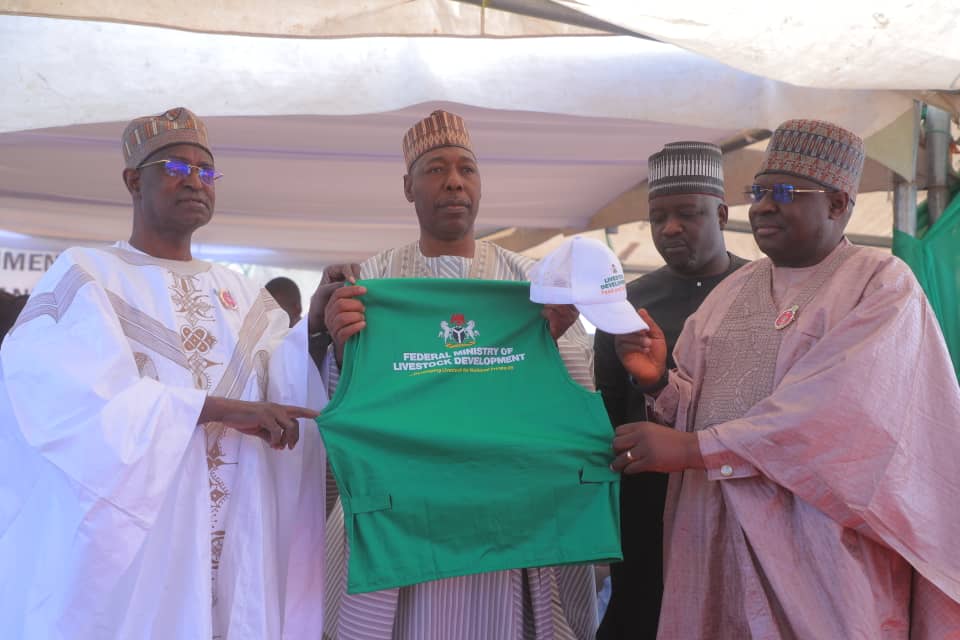
Goni Modu, a young herder from Mafa Local Government Area, shared his experience of embracing the new ranching model. “Before this project, we had to move our cattle from one place to another in search of food and water, often facing conflicts with farmers. Now, with the establishment of this ranch settlement, my cattle have access to better grazing land, water, and veterinary services. I’m confident that my livestock will thrive here, ensuring a better future for my family,” Modu explained.
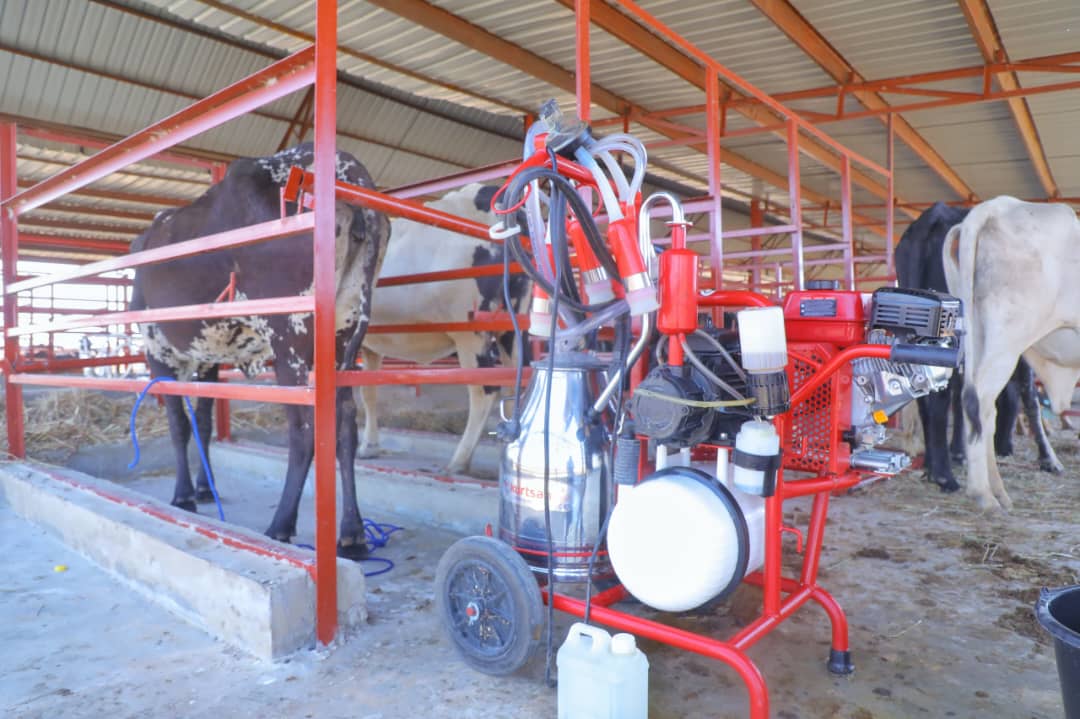
Bulama Madube, a local poultry farmer, also highlighted how modern livestock practices have opened new opportunities for her business. “I’ve always faced challenges with disease outbreaks among my poultry. But with the support of the settlement’s veterinary clinics and access to better breeds, I can ensure the health of my birds and improve production,” Madube shared. He views the program as a key to expanding her business, equipping her to meet local demand and even consider exporting her products in the future.
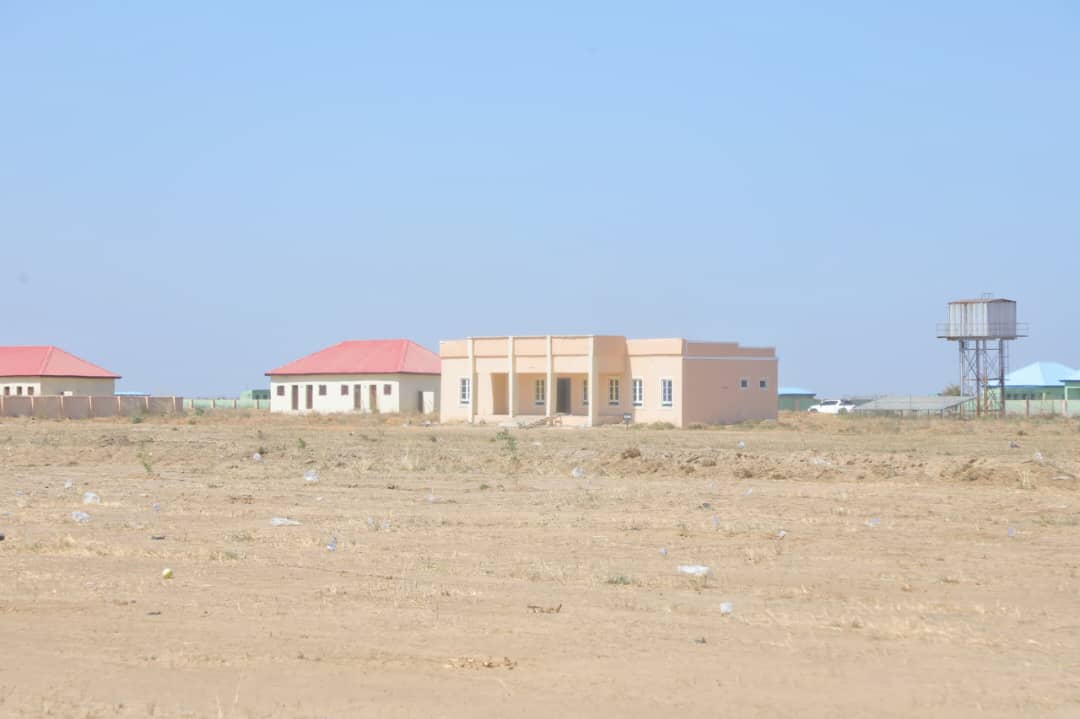
Meanwhile, Babagana Wakil, a small-scale livestock trader, reported a marked improvement in the marketability of his cattle. “Before the settlement, I struggled to sell my livestock at a fair price due to poor health and lack of proper care. Now, with better breeding techniques and access to proper infrastructure, I can sell healthy cattle that fetch higher prices in the market,” Wakil stated. He plans to expand his business by leveraging the advanced breeding and management practices offered at the settlement.
National and Global Impact
The Ngarannam Livestock Improvement and Ranch Settlement is part of a broader national effort to modernize Nigeria’s livestock sector. Prof. Attahiru Jega, a member of the Presidential Livestock Reforms Implementation Committee, delivered a keynote address at the event, emphasizing the need for collective action to drive reform. He urged both state and federal governments to continue collaborating, ensuring that the reforms are effective and sustainable.
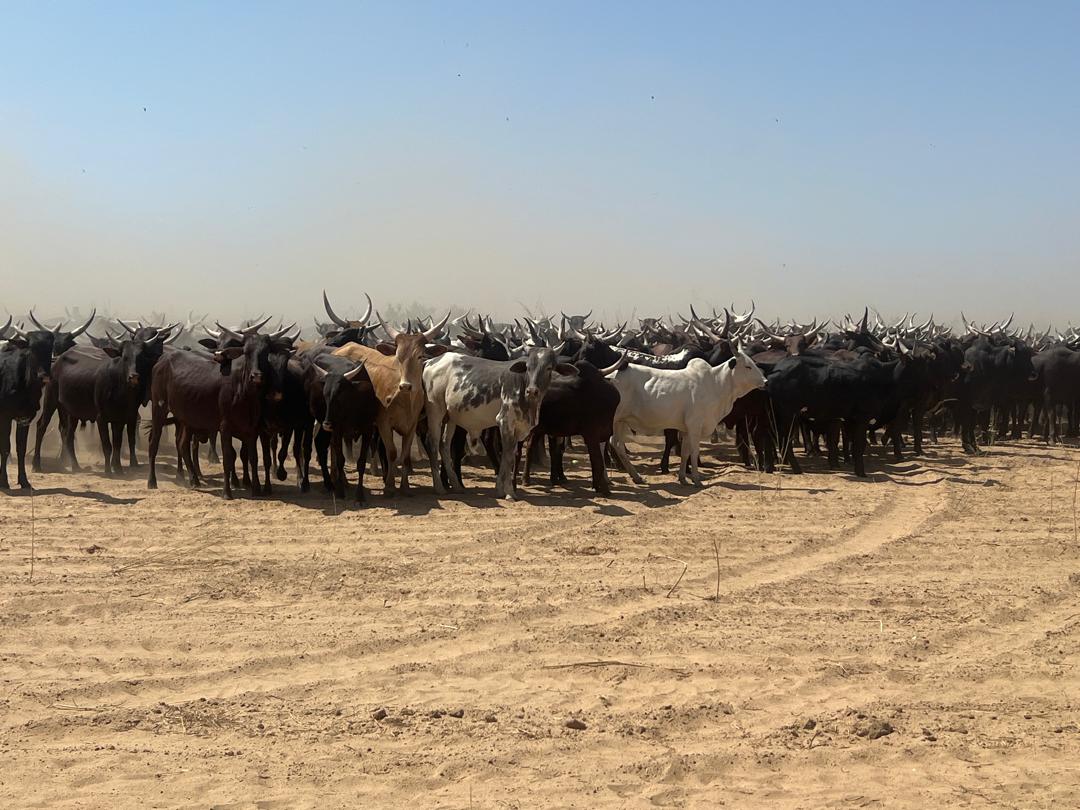
Prof. Jega highlighted the importance of stakeholder engagement in the reform process, asserting that the success of the livestock sector depends on the combined efforts of various partners. “The livestock reforms are not just the responsibility of the federal government or the state governments alone. It is critical that all stakeholders ranchers, farmers, policymakers, and international partners work together to ensure the success of this initiative,” he explained.
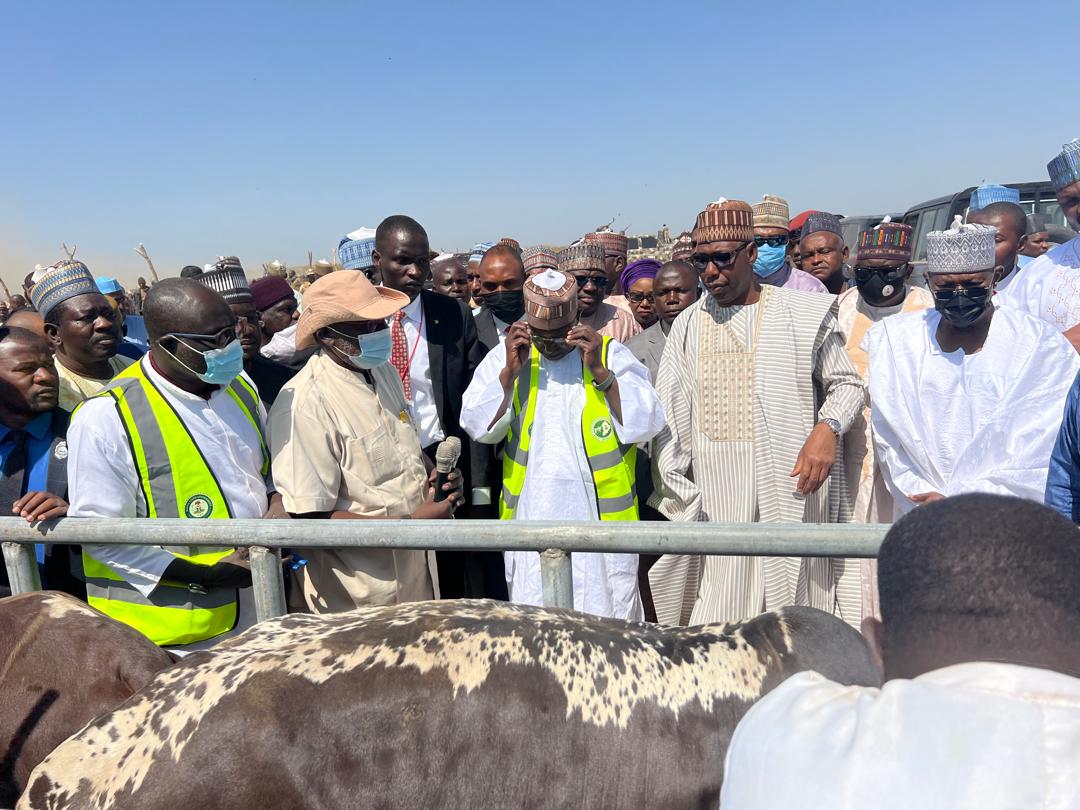
He stressed the necessity of integrating innovative solutions to boost productivity and ensure long-term sustainability. “We must embrace modern ranching techniques, focus on breed improvement, and provide adequate training to livestock farmers. This will enhance the quality of meat and dairy products while creating jobs and economic opportunities for our people,” Prof. Jega added.
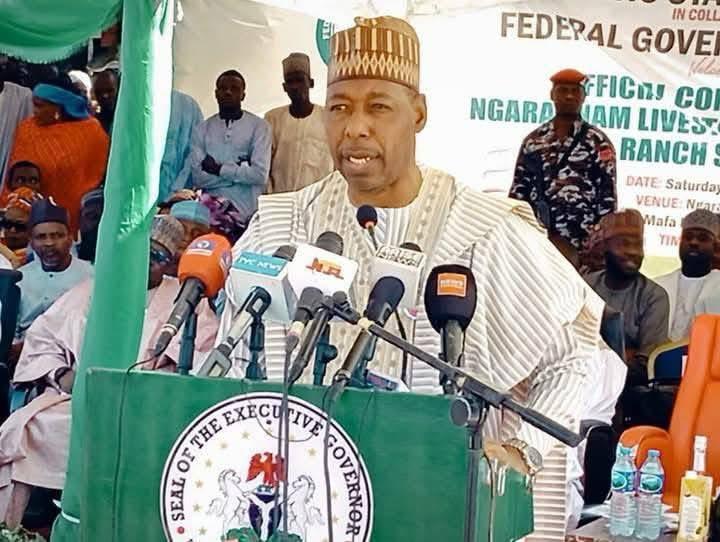
Acknowledging the growing interest from international investors, he noted that partnerships with global players are crucial to achieving the sector’s full potential. “International partners such as JBS S.A., Saudi Arabia, the United States, and China have already expressed interest in investing in our livestock sector. This is a clear indication that the reforms we are implementing are gaining global recognition,” he said.
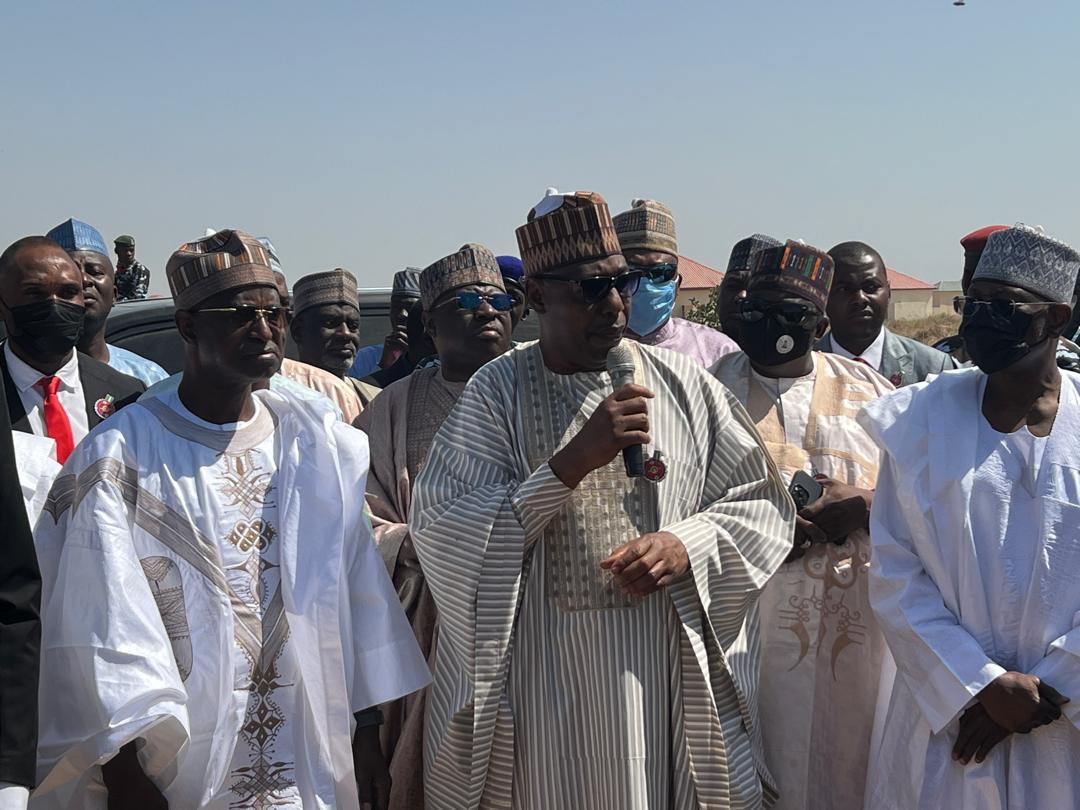
The National President of the Miyetti Allah Cattle Breeders Association of Nigeria (MACBAN), Alhaji Baba Usman-Ngelzarma, stated that this remarkable milestone stands as a testament to a collective commitment toward enhancing the livelihood of pastoralists. He commended the vision of the Borno government and all stakeholders who played a role in the establishment of this livestock settlement in Ngarnam community in Mafa.
“This initiative is not just a beacon of hope but a practical solution to many of the problems faced by pastoralist communities. It is a testament to what we can achieve when we come together with a common purpose and share a commitment to progress,” he said. He also commended President Bola Tinubu for creating the Ministry of Livestock Development, noting that this industry currently employs over 20 million Nigerians and has the potential to unlock millions of additional quality jobs.
He emphasized that Livestock Development will boost Nigeria’s foreign earnings, reduce transhumance, poverty, and conflicts associated with outdated practices. The livestock sector is currently valued at over N33 trillion, while it is projected to grow to over N75 trillion in a few years with new investments.
As the Ngarannam Livestock Improvement and Ranch Settlement continues to grow and evolve, its ripple effect will undoubtedly be felt throughout the region and beyond, ushering in a new era of agricultural growth, economic empowerment, and national unity.

